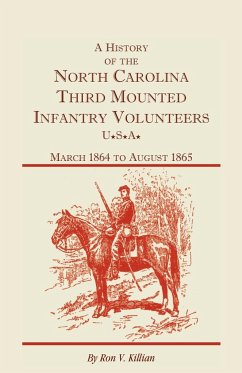For years preceding the Civil War, the mountain people of western North Carolina lived under very different social and economic conditions than their plantation farming counterparts in other parts of the state. The mountain people did not generally own slaves, making them reluctant to contribute soldiers when North Carolina seceded from the Union. Many of these pro-Union Carolinians took up arms as Federal troops and engaged in guerrilla raids to disrupt Confederate operations within their home state. The Third Mounted Infantry was one such unit, organized under Col. George Washington Kirk in February 1864. Ron V. Killian's history discusses the brief but sensational career of the Third Mounted Infantry from its inception up to the occupation of Asheville, NC in 1865. Until now, little material has been published on the role of the Third Mounted Infantry in the pacification of the Tennessee/North Carolina mountain region. Often erroneously referred to as "bushwhackers" or "Tories," the patriotic fathers, sons and brothers that composed this regiment rendered commendable service in the Camp Vance Raid, Stoneman's Raid against Confederate positions in both Tennessee and North Carolina, and various skirmishes at Morristown, Russellville, Waynesville and Asheville. Detailed accounts of engagements involving the regiment are supplemented by extensive rosters noting full name, month, year, and place of enlistment, and age at time of enlistment for officers, staff, private soldiers and musicians. A biographical sketch of Col. Kirk is also included.








